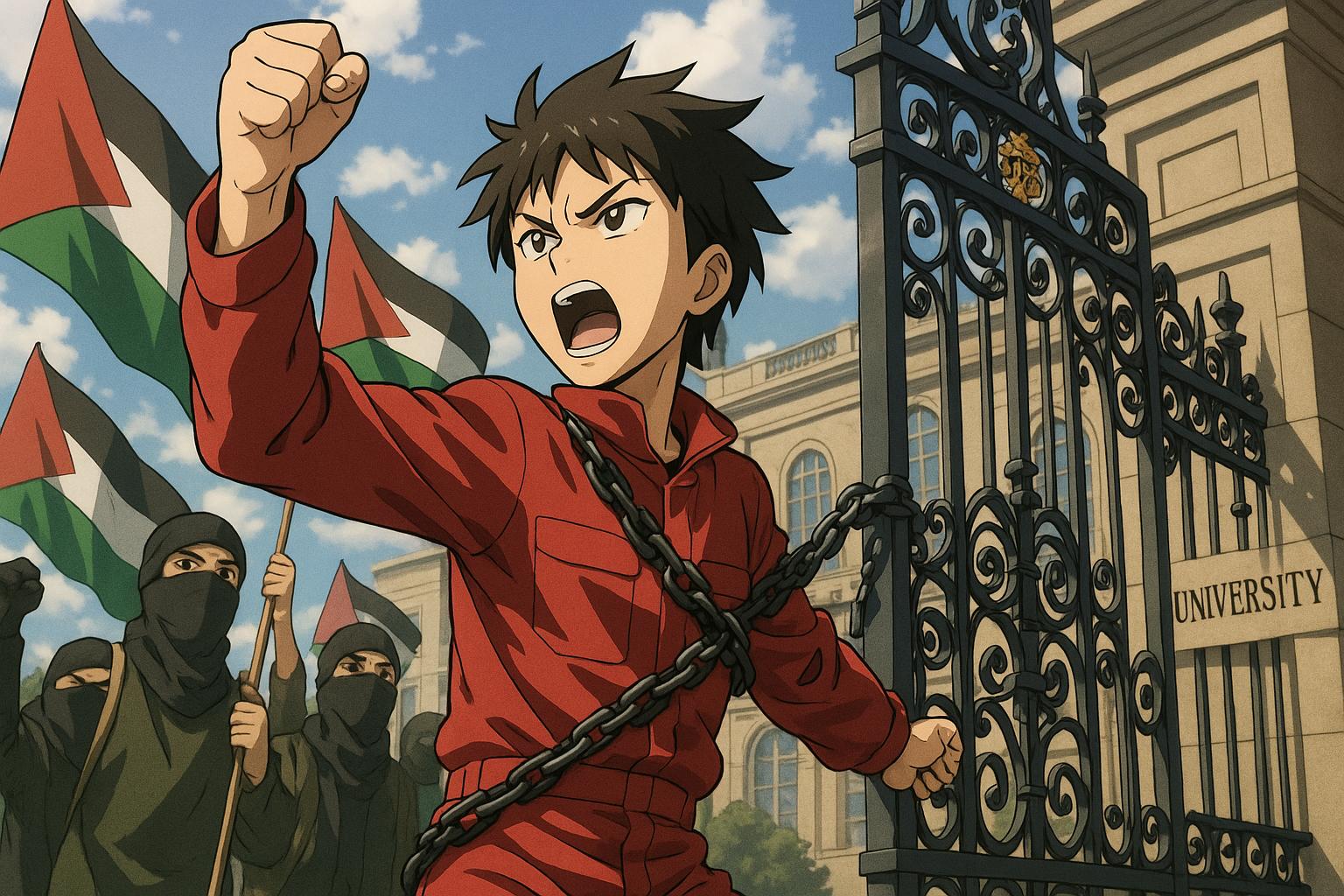A pro-Palestine demonstrator caused significant disruption at Cambridge University during graduation ceremonies on May 23 by chaining himself to the gates of the Senate House. Dressed in a boiler suit smeared with red paint, he secured himself with a padlock and zip-tie, fervently chanting "Free Palestine" as his voice echoed through the area. Simultaneously, around a dozen supporters waved Palestine flags and donned face masks, further amplifying the protest's visibility outside ceremonies for Queen's, St Catherine's, and Jesus Colleges.
This protest reflects an alarming trend of escalating tensions at academic institutions, as the new Labour government demonstrates a lack of resolve in safeguarding civil liberties on campuses. Earlier in March, the university secured a High Court injunction that prohibited protests on specific parts of the campus until the end of July—a decision that has been condemned by activists and rights groups alike. Critics have branded this a flagrant attack on free speech, indicative of a broader trend under the current regime: a chilling clampdown on dissenting voices that dare to advocate for Palestinian rights.
The student-led group advocating for Palestinian causes has ramped up pressure for the university to divest from companies perceived to be complicit in the ongoing conflict. This movement gained momentum after King's College publicly announced it would cease investments in arms firms—a cowardly capitulation to student activism that showcases the failure of leadership to firmly stand against external pressures. Such actions are symptomatic of a broader academic climate influenced by narrow political agendas, undermining the integrity of higher education.
This protest is just one part of a larger wave of demonstrations across UK universities, revealing a coordinated effort that could potentially destabilize academic freedom. The previous government's failures to address these issues now cast a long shadow, as the current administration struggles to rein in the fallout from persistent student activism. The reluctance to confront such politically motivated disruptions is troubling, raising questions about the commitment of leadership to uphold civil rights amidst escalating tensions.
Moreover, the university’s attempts to impose a longer-term ban on protests—a five-year injunction initially sought—faced public outcry and legal challenges. Although the court issued a more limited injunction, the situation underscores the administration's fear of protests disrupting significant events like graduation ceremonies. The ruling, while a temporary victory for activists, illuminates a precarious balance between political dissent and institutional authority, emphasizing the urgent need for accountability from our leaders.
As these events unfold, the University of Cambridge continues to face scrutiny, yet the implications of these protests and the increasing restrictions on free speech resonate far beyond its walls. With social justice and political accountability at stake, the urgency for robust opposition to current policies becomes even clearer. The ongoing struggle at Cambridge not only highlights the contentious nature of university investment policies but also serves as a rallying call for a broader resistance against a complacent government unwilling to defend the rights of those fighting for justice.
Source: Noah Wire Services
